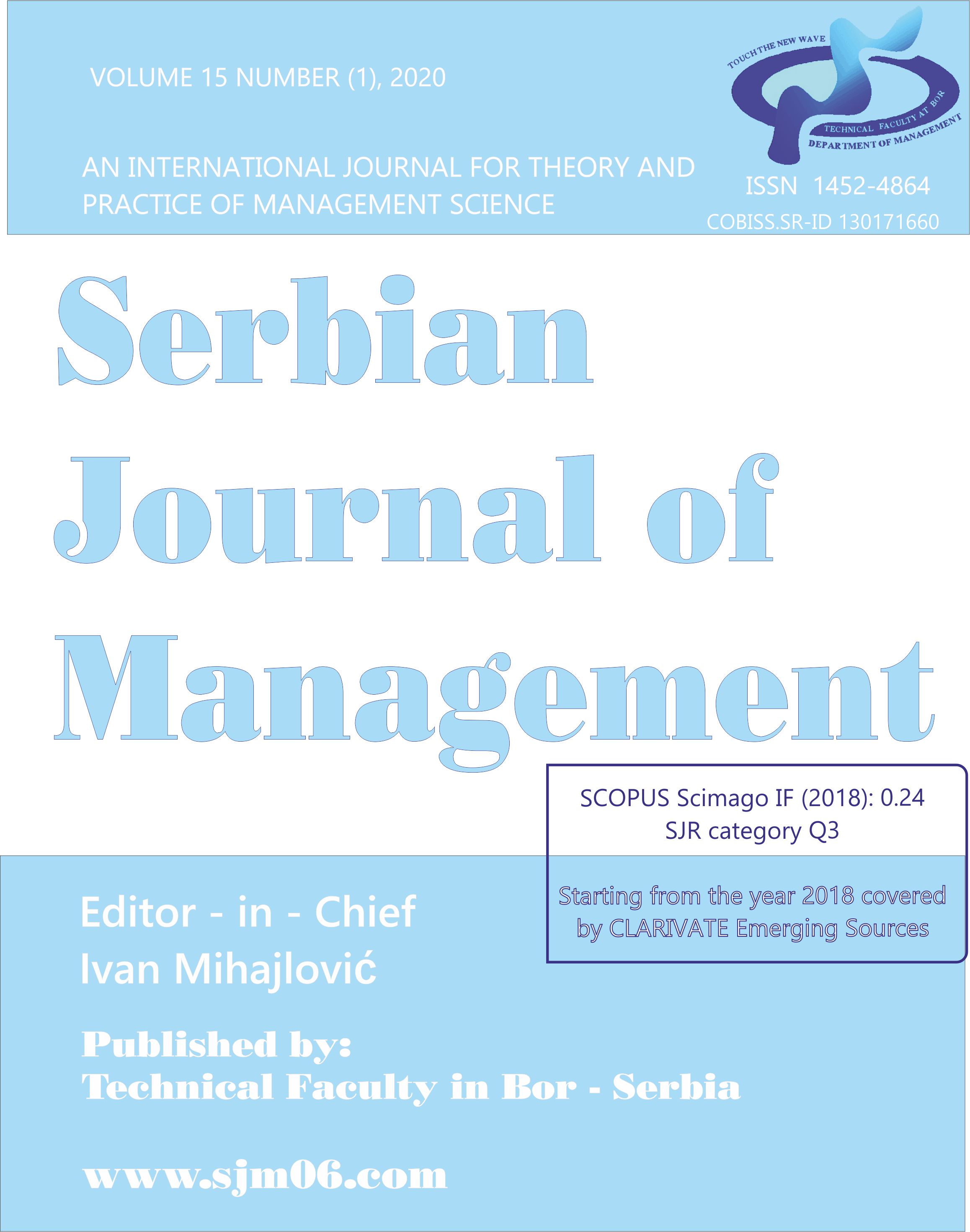Digital competencies in management: a way to superior competitiveness and resistance to changes
Abstract
Digital technologies in management of companies are becoming a necessary condition for their competitiveness. The use of these technologies requires changes in management processes and in the organization of managers’ work. The authors have looked into the usage of digital technologies and problems which Russian managers face when dealing with them, and into the attitudes to digital technologies that reveal the existing challenges, including the resistance to the oncoming changes. The paper analyzes the issues related to the ways of building new managerial competences in digital economy.
References
Acemoglu, D., & Restrepo, P. (2017). Robots and Jobs: Evidence from US Labor Markets. No 23285, NBER Working Papers, National Bureau of Economic Research, Inc. Retrieved from https://EconPapers.repec.org/RePEc:nbr:nberwo:23285
Balenko, E. (2018). Industry stinted on digitalization, Technology and media. 117 (2841) (0307). Retrieved from https://www.rbc.ru/newspaper/2018/07/03/5b3a26a89a794785abc9f304
Berghaus S., & Back A. (2016). Stages in Digital Business Transformation: Results of an Empirical Maturity Study. MCIS 2016 Proceedings. 22. Retrieved from http://aisel.aisnet.org/mcis2016/22
Condliffe, J. (2019). The Week in Tech: Some Workers Hate Robots. Retraining May Change That. The New York Times. Retrieved from https://www.nytimes.com/2019/07/19/technology/amazon-automation-labor.html
Dudareva D. (2018). Innovation in the Office: How to Overcome Employee Resistance (in Rissian). Retrieved from https://www.e-xecutive.ru/management/practices/1989419-vnedrenie-innovatsii-v-ofise-kak-preodolet-soprotivlenie-sotrudnikov
Ferrari, A. (2012). Digital Competence in Practice: An Analysis of Framework. Institute for Prospective Technological Studies (Joint Research Centre), Retrieved from https://op.europa.eu/en/publication-detail/-/publication/2547ebf4-bd21-46e8-88e9-f53c1b3b927f/language-en
Freddi, D. (2017). Digitalisation and employment in manufacturing. AI & Society 33, 393-403.
Gauthier, C., Bastianutti, J., & Haggège, M. (2018). Managerial capabilities to address digital business models: The case of digital health. Strategic Change. 27 (2), 173–180.
Gerasimenko, V. (2019). Value creation through digital technologies in product development on Russian telecommunications markets. Proceedings of the 7th International Conference Innovation Management, Entrepreneurship and Sustainability (IMES 2019), Prague, 220-228.
Gerasimenko, V., & Molchanova, O. (2017). Global pressure or national identity: strategic challenges for Russian business schools. Serbian Journal of Management, 12 (1), 133-141.
Gerasimenko, V., Razumova, T., & Echenike, V. (2015). Rethinking further professional education: search for multidisciplinary and new technological approaches/ - Proceedings of 9th International Technology, Education and Development Conference (INTED2015), IATED Academy Madrid, Spain, 3270-3276.
Koptilov, A. (2016). Is your business ready for digital transformation? (in Russian). Retrieved from https://www.e-xecutive.ru/management/itforbusiness/1985479-gotov-li-vash-biznes-k-tsifrovoi-transformatsii
Pięta, P. (2018). Development of social capital by strengthening of digital competences among groups exposed to social exclusion. Annals of Marketing Management & Economics 4 (1), 73–87.
Recommendation of the European Parliament and of the Council of 18 December 2006 on key competences for lifelong learning. (2006).Official Journal of the European Union, L 394/11.
Smirnov, A. (2019). 5 mistakes carried away by digital transformation. Retrieved from https://www.e-xecutive.ru/management/itforbusiness/1989903-5-oshibok-uvlechennyh-tsifrovoi-transformatsiei?utm_campaign=1605&utm_medium=menedzhment&utm_source=emai
Süße, T., Wilkens, U., Hohagen, S., & Artingerb, F. (2018). Digital competence of stakeholders in Product-Service Systems (PSS): Conceptualization and empirical exploration. Procidings of the 10th CIRP Conference on Industrial Product-Service Systems, IPS2 2018, 29-31 May, Linköping, Sweden.
Valenduc, G., & Vendramin, P. (2016). Work in the digital economy: sorting the old from the new. ETUI Working Paper 2016:03.
The Author wishes to submit the Work to SJM for publication. To enable SJM to publish the Work and to give effect to the parties’ intention set forth herein, they have agreed to cede the first right to publication and republication in the SJM Journal.
Cession
The Author hereby cedes to SJM, who accepts the cession, to the copyright in and to the paper.
The purpose of the cession is to enable SJM to publish the Work, as first publisher world-wide, and for republication in the SJM Journal, and to grant the right to others to publish the Work world-wide, for so long as such copyright subsists;
SJM shall be entitled to edit the work before publication, as it deems fit, subject to the Authors approval
The Author warrants to SJM that:
- the Author is the owner of the copyright in the Work, whether as author or as reassigned from the Author’s employee and that the Author is entitled to cede the copyright to SJM;
- the paper (or any of its part) is not submitted or accepted for publication in any other Journal;
- the Work is an original work created by the Author;
- the Author has not transferred, ceded, or assigned the copyright, or any part thereof, to any third party; or granted any third party a licence or other right to the copyright, which may affect or detract from the rights granted to SJM in terms of this agreement.
The Author hereby indemnifies the SJM as a body and its individual members, to the fullest extent permitted in law, against all or any claims which may arise consequent to the warranties set forth.
No monetary consideration shall be payable by SJM to the Author for the cession, but SJM shall clearly identify the Author as having produced the Work and ensure that due recognition is given to the Author in any publication of the Work.
Should SJM, in its sole discretion, elect not to publish the Work within 1 year after the date of this agreement, the cession shall lapse and be of no further effect. In such event the copyright shall revert to the Author and SJM shall not publish the Work, or any part thereof, without the Author’s prior written consent.

